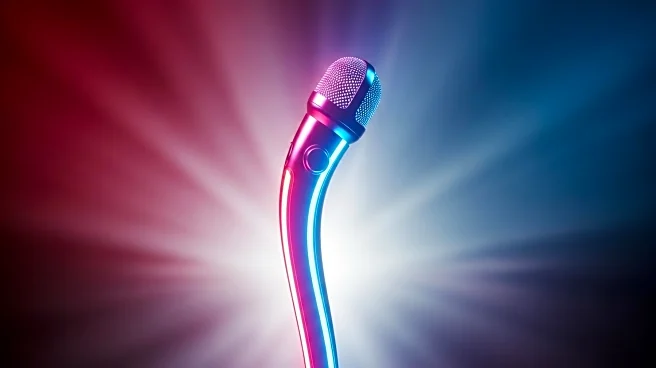What is the story about?
What's Happening?
Bad Bunny, the Puerto Rican rapper, has been announced as the headliner for the 2026 Super Bowl halftime show, set to take place in Santa Clara, California. The NFL's decision to feature Bad Bunny, known for his Spanish-language music and outspoken political views, has generated both excitement and controversy. Bad Bunny, whose real name is Benito Antonio Martínez Ocasio, expressed his pride in representing his culture and history on such a significant platform. This announcement follows his previous performance at the 2020 Super Bowl alongside Shakira and Jennifer Lopez. Bad Bunny has been a prominent figure in bringing Spanish-language rap to mainstream audiences, with multiple chart-topping albums and a strong global fanbase.
Why It's Important?
The selection of Bad Bunny as the Super Bowl halftime show headliner highlights the increasing influence of Latin music in the United States and the broader acceptance of diverse cultural expressions in mainstream American entertainment. This move by the NFL could be seen as an effort to appeal to a more diverse audience, reflecting the changing demographics of the U.S. However, it also invites criticism from conservative circles due to Bad Bunny's political stances, particularly his critiques of U.S. immigration policies. The performance is likely to spark discussions about cultural representation and the role of artists in political discourse.
What's Next?
As the Super Bowl approaches, anticipation will build around Bad Bunny's performance, with potential reactions from both supporters and critics. The event could further solidify his status as a global music icon and influence future decisions by major entertainment platforms to feature artists from diverse backgrounds. Additionally, the performance may prompt discussions on the NFL's role in cultural representation and its impact on public perception.
Beyond the Headlines
Bad Bunny's involvement in the Super Bowl halftime show underscores the broader cultural shifts towards inclusivity and representation in American media. It also highlights the potential for music and entertainment to serve as platforms for political and social commentary. The event may encourage other artists to use their platforms to address important issues, contributing to a more engaged and informed public.















